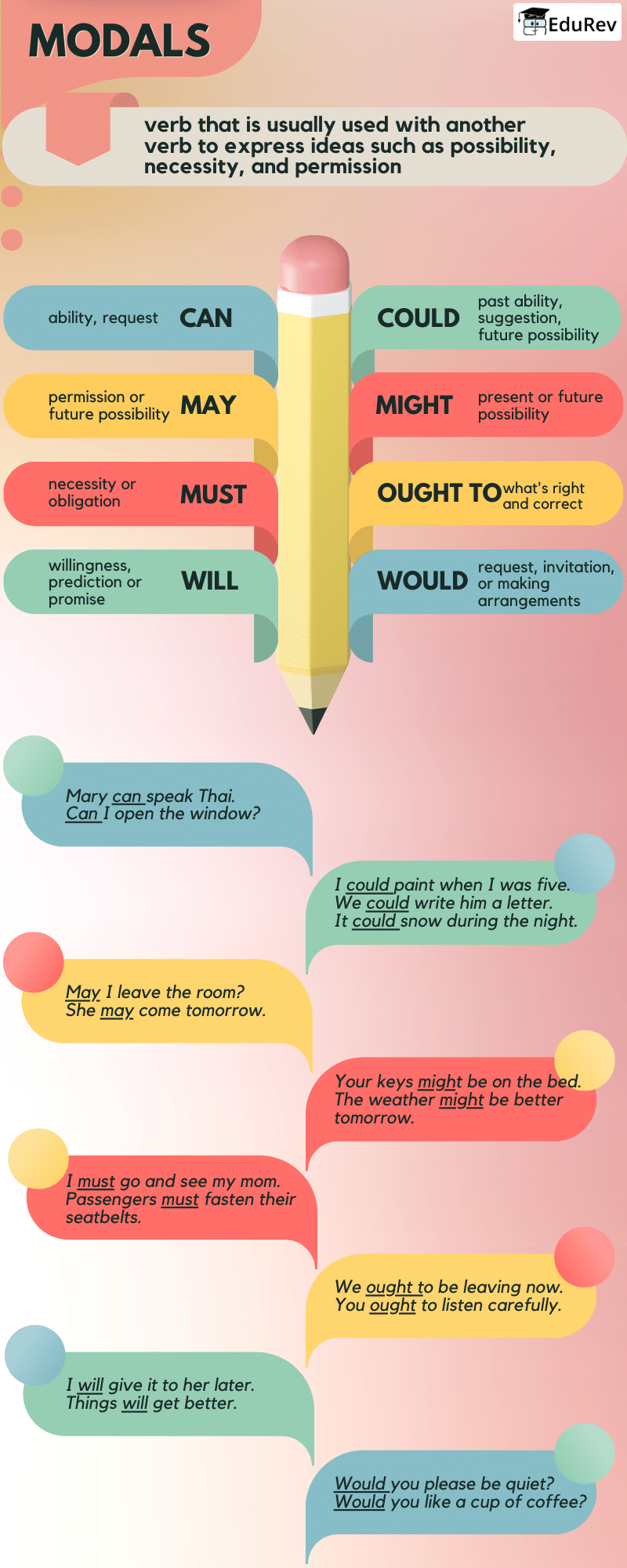Class 6 Exam > Class 6 Notes > English Grammar for Class 6 > Learning Poster: Modals
Learning Poster: Modals | English Grammar for Class 6 PDF Download

The document Learning Poster: Modals | English Grammar for Class 6 is a part of the Class 6 Course English Grammar for Class 6.
All you need of Class 6 at this link: Class 6
|
49 videos|349 docs|46 tests
|
FAQs on Learning Poster: Modals - English Grammar for Class 6
| 1. What are modals and how are they used in English? |  |
Ans. Modals are auxiliary verbs that express necessity, possibility, permission, or ability. Common modals include can, could, may, might, must, shall, should, will, and would. They are used to modify the main verb in a sentence, adding additional meaning. For example, "She can swim" indicates ability, while "You must finish your homework" indicates necessity.
| 2. What is the difference between 'must' and 'have to'? |  |
Ans. 'Must' is used to express a strong obligation or necessity that comes from the speaker, while 'have to' indicates an obligation imposed by external circumstances. For example, "I must go now" suggests a personal decision, whereas "I have to go to work" implies that the obligation is due to work requirements.
| 3. Can modals be used in the past tense? |  |
Ans. Yes, some modals have past forms. For example, 'can' changes to 'could' and 'may' changes to 'might' in past contexts. However, not all modals have a past form. For instance, 'must' does not have a past form, but one can use 'had to' to express past necessity. For example, "I could swim when I was younger."
| 4. How do modals affect the meaning of a sentence? |  |
Ans. Modals significantly alter the meaning of a sentence by indicating the speaker's attitude towards the action. For instance, "You should see a doctor" suggests advice, while "You might see a doctor" indicates possibility. The choice of modal can change the level of obligation, permission, or certainty associated with the verb.
| 5. Are there any exceptions or special cases when using modals? |  |
Ans. Yes, there are some exceptions. For instance, 'mustn't' indicates prohibition, while 'needn't' indicates lack of necessity. Additionally, modals do not change form with different subjects (e.g., "He can" and "They can" are both correct). Understanding these nuances is important for effective communication.
Related Searches





















